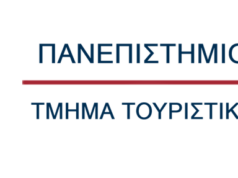 Politicians and industry leaders from 25 countries including Australia, Germany, the UK, the USA, Sweden, South Korea, France and Croatia gathered yesterday for the annual IMEX Politicians Forum.
Politicians and industry leaders from 25 countries including Australia, Germany, the UK, the USA, Sweden, South Korea, France and Croatia gathered yesterday for the annual IMEX Politicians Forum.
This year’s programme centred on discussion about the the full benefits of business events beyond the visitor spend. It also covered a detailed examination of the findings of CIC’s recent Economic Impact Study of the US meetings market; a landmark study which has broad implications for all regions of the world, including emerging markets.
The day’s schedule started with a presentation by the Future Convention Cities Initiative (FCCI) which represents a group of cities focused on sharing research and innovation insights in order to help them capitalise on meetings and events business. The “Engines of Growth” workshop provided details of each city’s strategic development plans and asserted the importance of political backing and deeper understanding if these cities are to take advantage of their full convention market potential.
Power of research to influence political opinion
Later in the day, once politicians had toured the IMEX show floor to experience the power and scope of the industry at first hand and to meet their respective destination stands, the focus shifted to a detailed examination of the findings of the Convention Industry Council’s (CIC) recent Economic Significance of Meetings to the US Economy study. Karen Kotowski, CEO of CIC, Deborah Sexton, President & CEO of PCMA and Bruce MacMillan, President & CEO of MPI (Meeting Professionals International) explained how the study was the unique result of an alliance of 14 organisations, each collectively representing the entire US meetings industry. The speakers shared their insights about the impact of the study’s findings on different segments of the meetings industry worldwide. They also outlined how their own members had responded and how each organisation would be using the data to influence political opinion and guide key decisions over the next few years.
They also summarised that the study had set an excellent example for other countries to follow and that it was expected to be only a short time before other key markets produced similar reports and vital comparative data. “This research, and these figures, finally assert the true power of the US meetings market and mean it can hold its head high against other major sectors. Now we know for a fact that the meetings and events sector supports 1.7 million jobs and that it makes a bigger contribution to US GDP than auto manufacturing, for example, and the information and data processing industry. Who’d have thought it?” said one delegate.
Remember to show and tell at IMEX ’11: Show the world your IMEX pix, and share your success stories too.
As part of the day’s debate, Rodolfo López Negrete Coppel, COO of the Mexico Tourism Board spoke to politicians and other guests about the significant impact made by the meetings industry on Mexico’s rapid growth in recent years. He explained how Mexico had recognised it had valuable assets which were highly attractive to the market and how industry leaders had set out to maximise them.
In turn, Jon Hutchison AM, CEO of Business Events Sydney, also spoke about collaborative research initiatives taking place in Australia that measure values “beyond tourism” as part of a planned and consistent effort to prove the economic worth of the meetings and event market to the region.
The day’s proceedings were once again introduced and moderated by Michael Hirst, OBE, Chairman of Business & Events Partnership UK. Rod Cameron, Director of International Development for the International Association of Convention Centres (AIPC) also facilitated.
HyeonKi Kim, Chairman of the Culture, Sports and Tourism Committee of the Seoul Metropolitan Council stated: “By attending today I’ve gained a good impression of the meetings and events industry and how hard they are working to involve politicians, and how important the industry is to the economy. When I return to Seoul I will help to locate the budget to develop the industry.”
Nicolas Kanellopoulos President of the Hellenic Republic Ministry of Culture and Tourism, gave his opinion as: “It’s quite important to find synergies between government and the industry and the key is how politicians can open the field for the meetings industry to develop. It has been interesting to hear the research presented today and compare that to what is happening in Greece.”
From the Ministry of Tourism, Government of India, Additional Director General, Devesh Chaturvedi, said: “The meetings industry is very important for developing economies, especially India. We were late starters but are catching up fast – as is demonstrated by our new Hyderabad Convention Centre. We are now incentivising the development of other convention centres throughout the country.”











